Below are four policy research reports that the Village in Oakland unhoused leaders and members contributed to:
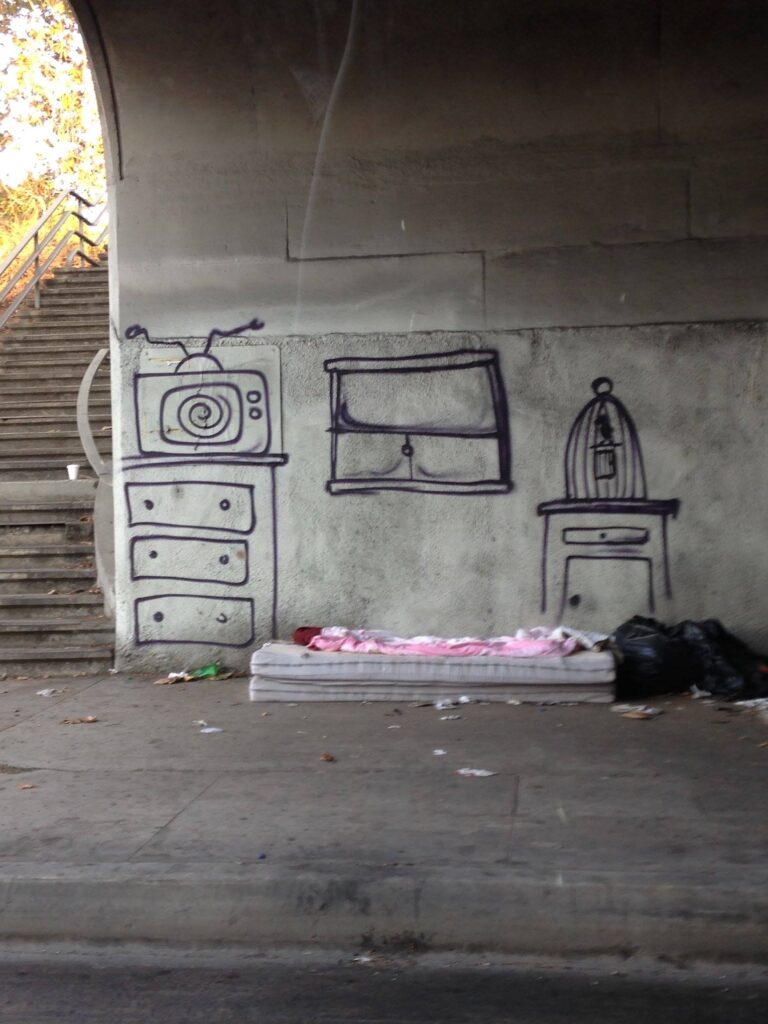
UN Report of Adequate Housing
On October 19th, the United Nations Special Rapporteur to the Right to Adequate Housing, Lelani Farha, released her new report documenting the “global scandal” of homeless encampments. In January of 2017, Farha spent time in the San Francisco Bay Area and Southern California to meet with unhoused residents and housed advocates and described the conditions as “cruel and inhumane”. The only U.S. cities explicitly called out for violations in the UN’s report on global homelessness are San Francisco and Oakland.
“In my capacity as the UN Rapporteur on Housing, I visited California and saw firsthand the human right violations being experienced by people who are homeless. They are the victims of failed policies—not the perpetrators of crime. The state of California must take action to remedy the criminalization of rest…While I toured encampments and drop-in facilities serving homeless people, the community repeatedly expressed that they simply wanted to be treated as human beings. It is dehumanizing, demoralizing, and unjust to criminalize hundreds of thousands of people due to their housing status.”
She states that while the existence of “informal settlements” are human rights violations due to local government’s lack of will to provide permanent housing to all residents, these encampments are also people’s assertion to their denied human right of housing. She declares curbside communities are acts of resilience, resourcefulness and ingenuity in the face of dire circumstances. Rather than criminalize or ignore these settlements, until permanent housing can be offered to all, it is the duty of local governments not to evict curbside communities but to upgrade them and residents of these encampments should participate in all areas of the upgrading, including sanitation, clean water, food services and support services.
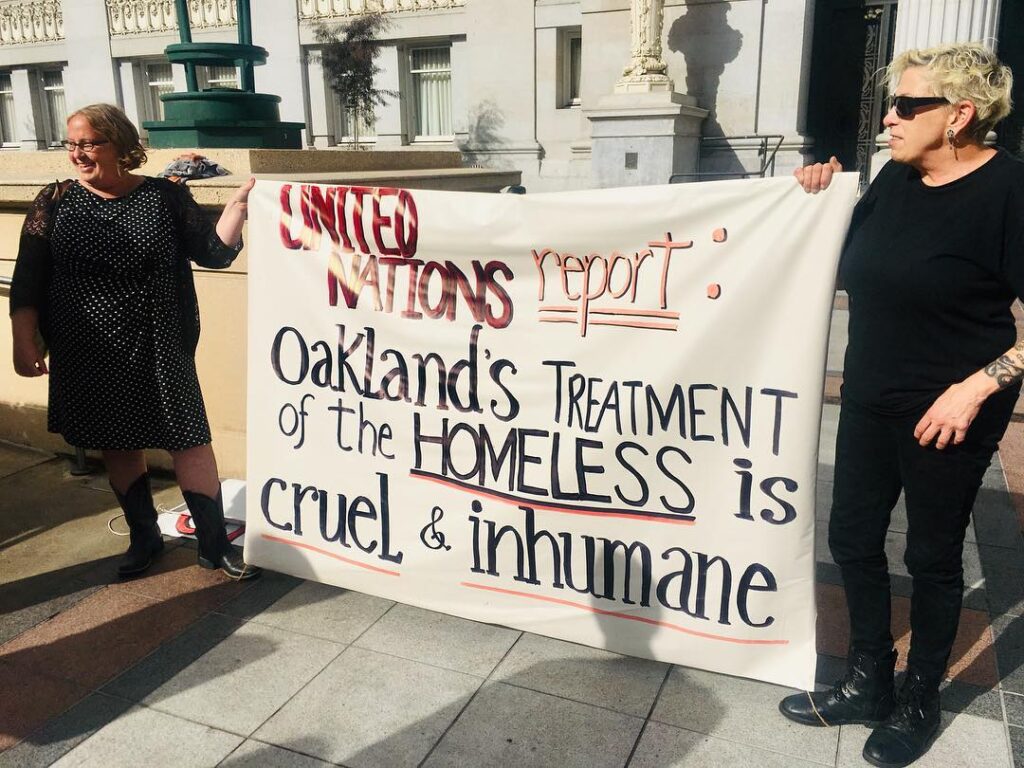
Homeless leaders and advocates in San Francisco, Berkeley and Oakland hosted Ms. Farha, including Coalition on Homelessness, Western Regional Advocacy Project (WRAP), The East Oakland Collective, The Village/Feed The People, and First They Came For The Homeless. Ms. Farha was able to hear and speak directly with people living in encampments and on our streets about the oppression, hatred and police violence they experience everyday. Representatives from these organizations, curbside leaders who are survivors of continued human rights abuses at the hands of government agencies, as well as legal advocates from Ella Baker Center For Human Rights and the Meiklejohn Civil Liberties Institute will be speaking a Tuesday’s Press Conference.
In Ms. Farha’s report she frames the encampments and street dwelling in the United States under the same vein as the informal settlements around the world. Finding that “the scope and severity of the living conditions in informal settlements make this one of the most pervasive violations of human rights globally,” states the report. The Oakland conditions of discrimination and harassment of encampment residents and punitive denials of access to basic services constitute “cruel and inhuman treatment and is a violation of multiple human rights…Such punitive policies must be prohibited in law and immediately ceased.”
The report concludes with step by step recommendations to enhance the lives of over 800 million people around the world who live in informal settlements and inhumane conditions concluding:
“That truth is that by any measure — moral, political or legal — it is unacceptable for people to be forced to live this way. Refusing to accept the unacceptable is where we must begin. All actors must mobilize within a shared human rights paradigm around the imperative of upgrading all informal settlements by 2030.”
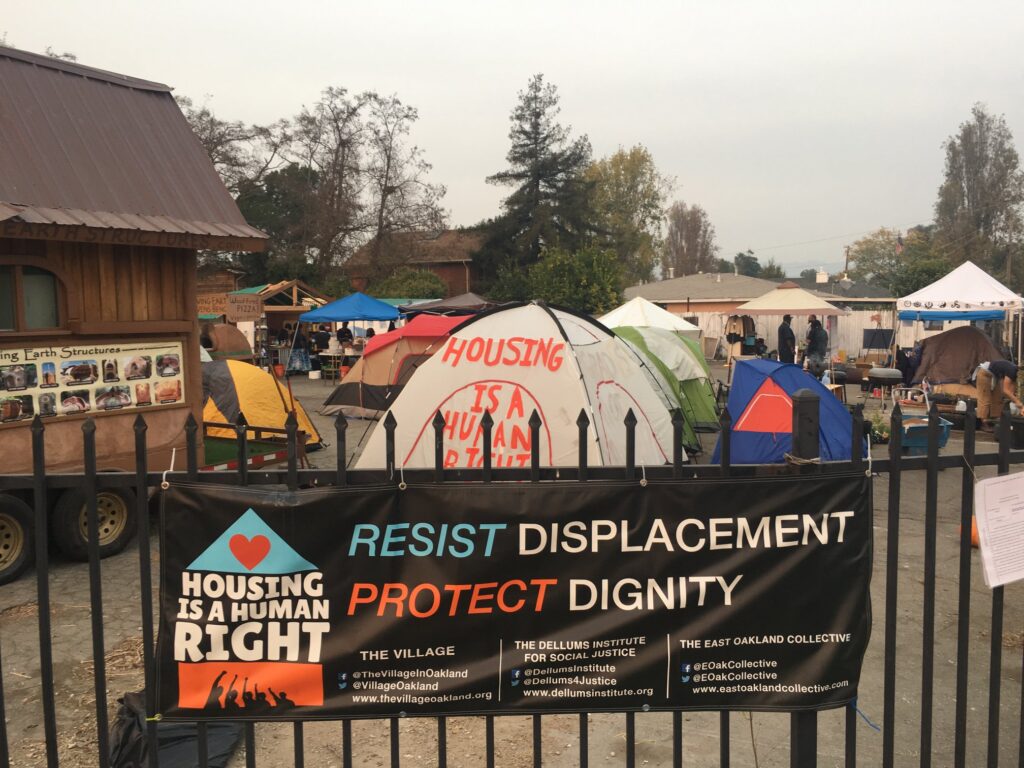
Housing Oakland’s Unhoused
In a recent UN Report on Adequate Housing, the Special Rapporteur Leilani Farha decries that “the world has come to accept the unacceptable” with “nearly a quarter of the world’s urban population living in informal settlements or encampments, most in developing countries but increasingly also in the most affluent. Living conditions are shocking and intolerable.” The UN Report calls out only two US cities for human rights violations–Oakland and San Francisco, cities of great wealth and also escalating inequalities.
Led by The Village, the East Oakland Collective, and the Dellums Institute for Social Justice/Just Cities, the Housing and Dignity Project worked for almost a year to develop a community-based plan to house all of Oakland’s unhoused residents: Housing Oakland’s Unhoused. The plan is based upon listening sessions with unhoused residents, builds upon a human-rights best practice example implemented by The Village, and policy analysis conducted by UC Berkeley Goldman School of Public Policy’s Rawan Elhalaby and Dr. Dan Lindheim. See here for Rawan’s Advanced Policy Analysis.
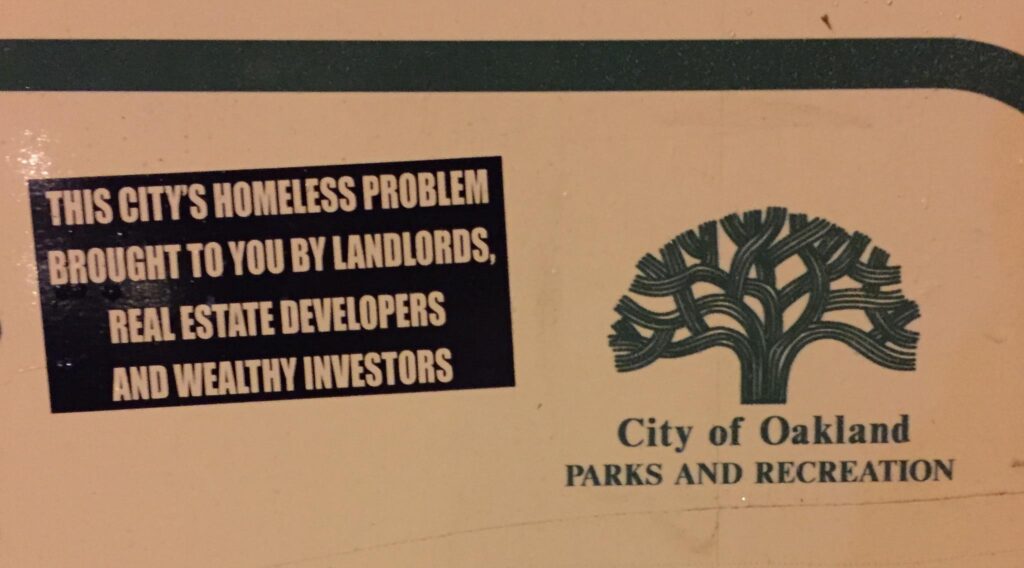
Standing Together: A Prevention-Oriented Approach to Ending Homelessness in Oakland
The City of Oakland faces a rising homelessness crisis and does not dedicate sufficient resources to funding effective prevention measures which will address the structural and systems failure factors causing Oaklanders to lose their homes.
From February to April 2019, The Housing & Dignity Project (The Village, East Oakland Collective, Dellums Institute/Just Cities) formed a team of one graduate student and four unhoused activists to conduct a community survey and a series of interviews with 95 persons living in ten homelessness encampments around Oakland and 33 persons from OUSD and Laney College. The team engaged 18 people in interviews or informal conversations. Through academic literature review, demographic data analysis and participation from the community, the team found the key factors caused homelessness in Oakland.
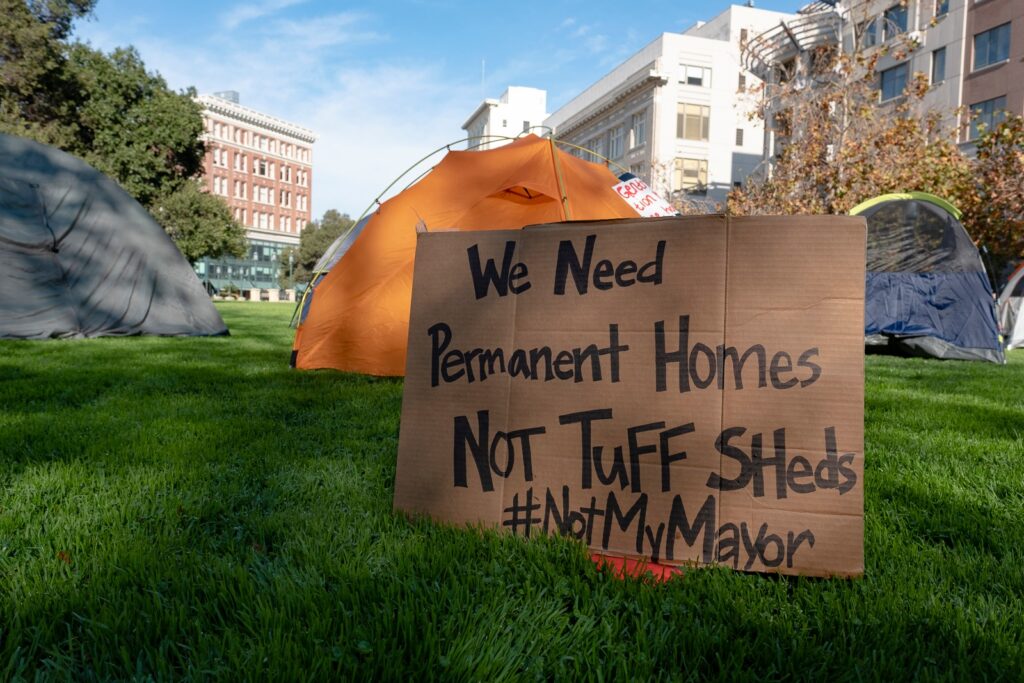
Rooted In Home: Community Based Alternatives to the Bay Area Housing Crisis
The San Francisco Bay Area, as one of the wealthiest metropolitan regions in the world, should be able to provide stable, decent, affordable housing for all of its residents. Instead, the region is in the grips of an acute housing affordability crisis.
In this report, we introduce real-world examples of alternative solutions and responses to the housing crisis—rooted in permanent affordability and democratic community control—that people are actively working on in the Bay Area and beyond. It is time to move past the current for-pro t market system and the crisis it has created. We must move boldly in a different direction—towards an understanding that housing is a human right.
